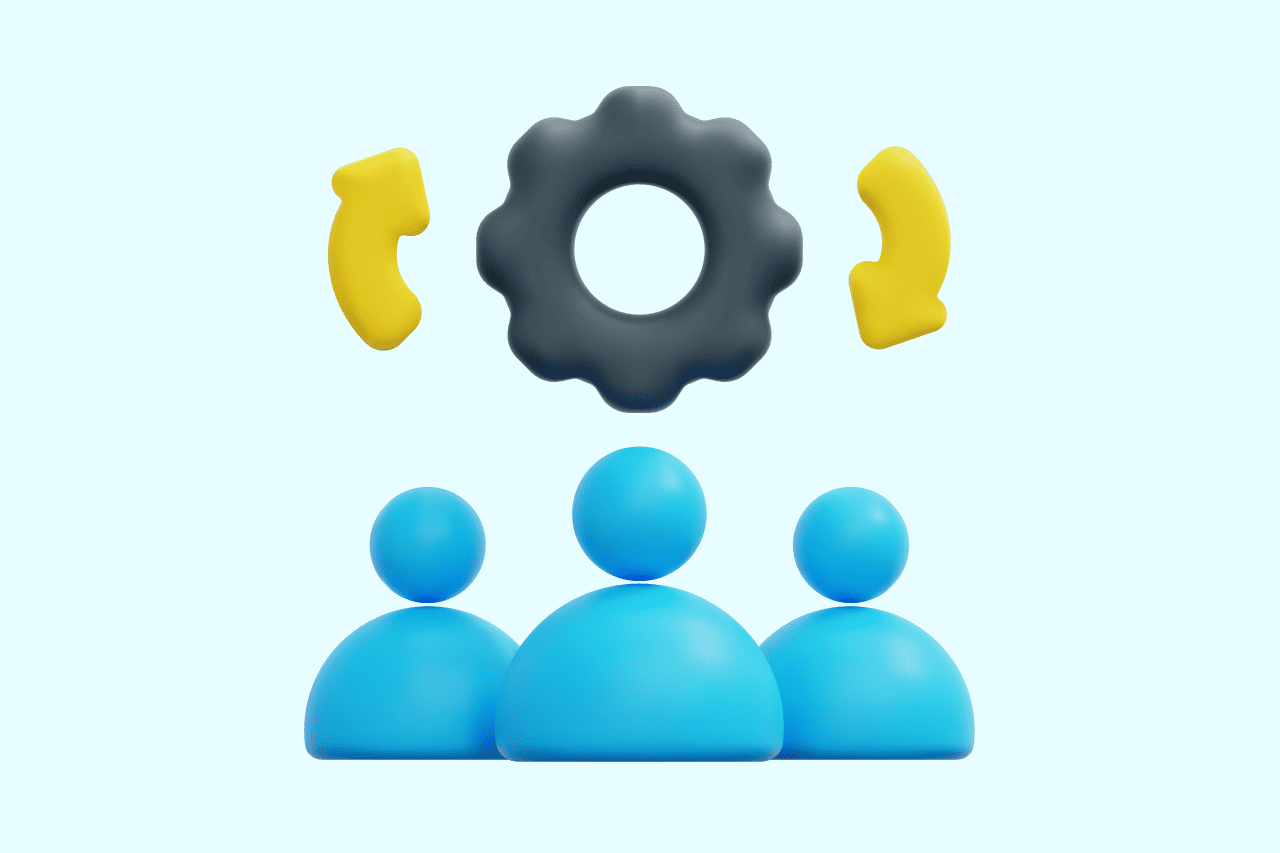Top 12 Key Functions of Human Resources Management (HRM) in 2024

Human Resources (HR) is often perceived as a reactive department, called upon only in crises or termination situations. However, HR’s role extends far beyond that. In the modern era, organizations are increasingly people-centric, recognizing that a robust HR management strategy is crucial. HR ensures a company’s health by addressing talent shortages and fostering employee satisfaction. In this people-centric approach, HRM plays a vital role in achieving organizational objectives, contributing significantly to growth and development. The organization experiences automatic growth and expansion as employees develop their skills.
What is Human Resource Management (HRM)?
Human Resource Management (HRM) is the strategic process of recruiting, hiring, and managing employees to maximize their performance and satisfaction, aligning with organizational goals. Utilizing HR service delivery tools, HR focuses on hiring and emphasizing cultural fit for long-term employee retention and productivity. Often confused with Human Capital Management (HCM), HRM sees employees as assets, managing systems for effective job performance. At the same time, HCM views employees as capital investments for future growth. HRM functions include recruiting, training, compensation, performance management, and employee relations, playing a crucial role in aligning the workforce with organizational objectives ensuring motivation, skills, and productivity.
How does Human Resource Management (HRM) work?
Human resources management (HRM) effectively relies on a dedicated team of HR professionals capable of carrying out day-to-day responsibilities. Within an HR department, there are various roles ranging from entry-level positions, such as HR assistants and associates to mid-level roles like HR generalists and and information specialists. More senior positions, including talent acquisition managers, business partners, and HR managers, contribute to the overall functioning of the department. The number of workers, industry, and organizational size are some of the variables that affect the size of an HR department. HRM professionals can further their careers by obtaining certifications. The role of a Human Resource Manager encompasses managerial tasks, such as forecasting employee demand and evaluating performance, operative functions like recruiting and ensuring employee skill, and advisory responsibilities involving policy and procedure management within the organization.
Importance of HRM:
Human Resource Management (HRM) is crucial for organizations, contributing significantly to strategic management. HR managers play a key role in aligning organizational objectives, making informed decisions, and addressing professional problems among employees. They ensure effective resolution through objective assessments and promote positive communication. HRM provides essential tools, training, talent management, and legal advice for long-term sustainability. HR teams need a range of hard and soft skills, managing aspects from legal knowledge to conflict resolution. Effective HR management mitigates pitfalls such as hiring mismatches, high turnover, legal disputes, burnout, undertraining, and compliance issues. Due to its comprehensive nature, HR significantly impacts every department within an organization, making it a critical aspect of the overall company structure.
What are the functions of Human Resource Management (HRM)?
Human Resource Management (HRM) involves various functions essential for effective employee management within organizations. These functions include:
1. Talent Recruitment:
Talent recruitment is a fundamental HR function focused on identifying and selecting qualified candidates for job roles within an organization. HR managers play a pivotal role in creating effective recruitment strategies, including job descriptions, advertising, sourcing, resume evaluation, interviews, and candidate selection. Ensuring a smooth and effective recruiting process that draws in the top applicants who fit the organization’s criteria and values is the aim.
2. Onboarding:
The process of acclimating new hires to the work environment and culture is known as onboarding. HR managers oversee the completion of new hire paperwork, provide orientation, introduce employees to the company’s values and expectations, and foster a supportive environment. Effective onboarding is essential for helping new hires acclimate to their roles, establish positive connections with colleagues, and contribute to their long-term success within the organization.
3. Training and Development:
Enhancing the skills and knowledge of employees is the primary goal of HR operations such as training and development. HR managers determine the need for training, create pertinent programs, and conduct efficient training sessions. These programs guarantee that workers have the skills needed to succeed in their positions, which enhances worker performance, job satisfaction, and overall organizational success.
4. Performance Appraisal:
Performance appraisal involves the systematic evaluation of employees’ job performance, providing feedback, and setting performance goals. HR managers oversee the procedure, guaranteeing its efficacy, equity, and conformity to the strategic goals of the company. Performance appraisal plays a crucial role in recognizing high performers, addressing areas for improvement, and shaping professional development plans.
5. Succession Planning:
Succession planning is a strategic HR process focused on identifying and developing potential leaders within the organization. HR managers create plans for key positions, ensuring a smooth transition in case of departures. This function contributes to organizational stability and sustainability by nurturing internal talent and preparing individuals for leadership roles.
6. Compensation and Benefits:
Compensation and benefits administration is a vital HR function involving the design and management of fair and competitive reward systems. HR managers ensure employees are appropriately compensated for their work, considering salary structures, bonuses, and benefits packages. Well-designed benefits and pay plan encourages top talent attraction and retention while building a motivated and contented staff.
7. Employee Relations:
Employee relations, also known as labor relations, involves managing relationships between employees and the employer. HR managers resolve conflicts, attend to employee problems, and foster a healthy work environment. Good employee interactions boost overall organizational efficiency and provide a peaceful work environment.
8. Employee Engagement:
Employee engagement focuses on creating a connection between employees and their roles, fostering satisfaction, commitment, and productivity. HR managers facilitate communication, feedback mechanisms, and initiatives that enhance employee engagement, contributing to a positive work culture and lower turnover rates.
9. Human Resource Information Systems (HRIS):
HRIS involves the use of software to manage employee information, policies, and procedures. HR managers utilize HRIS tools to streamline administrative tasks, maintain accurate employee records, and support various HR functions, such as payroll, benefits administration, and compliance management.
10. HR Data and Analytics:
HR data and analytics involve leveraging data-driven insights for decision-making. HR managers use tools like the Human Resources Information System (HRIS) to analyze metrics related to employee turnover, workforce needs, and the impact of HR strategies. Data-driven decision-making enhances HR’s ability to align its practices with organizational goals and contribute to overall business success.
11. Health and Safety Regulations:
HR managers are responsible for ensuring compliance with health and safety regulations within the workplace. This includes developing and supporting safety training programs, understanding OSHA regulations, and managing Workers’ Compensation benefits. HR is essential to establishing a secure workplace and resolving health and safety issues to safeguard workers.
12. Personal Employee Support:
Beyond professional responsibilities, HR provides personal support to employees facing challenges. This may involve creating employee assistance programs, addressing personal problems affecting performance, or offering support during health crises. HR leaders strive to foster a supportive work environment where employees feel valued and cared for beyond their professional roles.
Conclusion:
In essence, human resource management (HRM) is indispensable for overseeing an organization’s workforce from recruitment to departure, aligning it with strategic goals for motivation and productivity. HRM ensures legal compliance, fosters diversity and inclusion, and maintains a safe work environment. HR managers are pivotal in implementing effective policies, supporting talent acquisition, and fostering a healthy workplace. Contrary to misconceptions, HRM is not confined to hiring but serves as the organizational nervous system, integral to success. A well-organized organization with clearly defined HRM functions is poised for long-term growth and prosperity.




